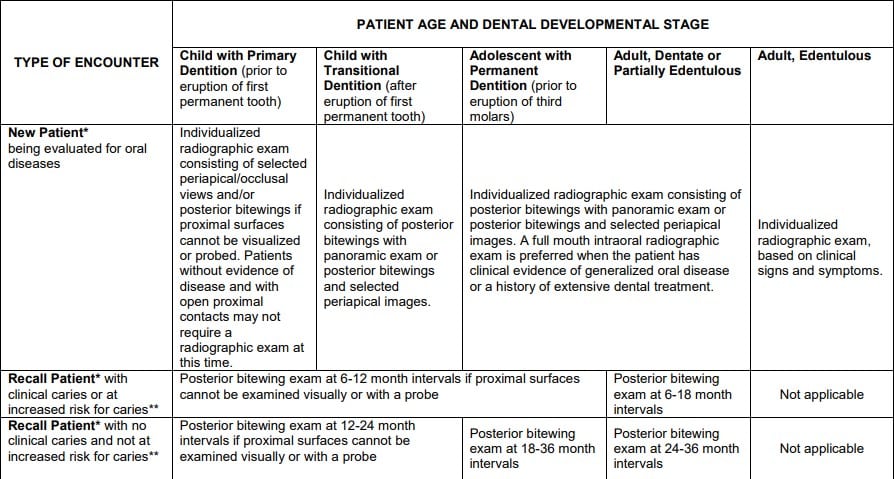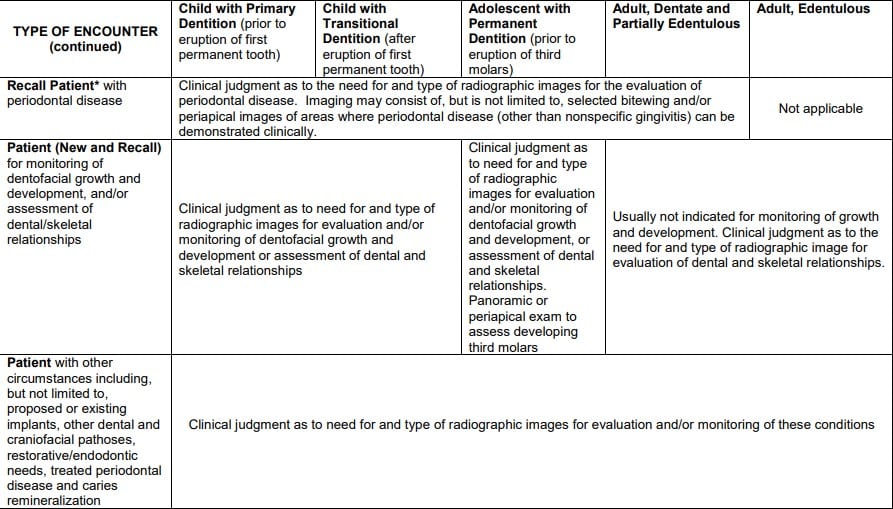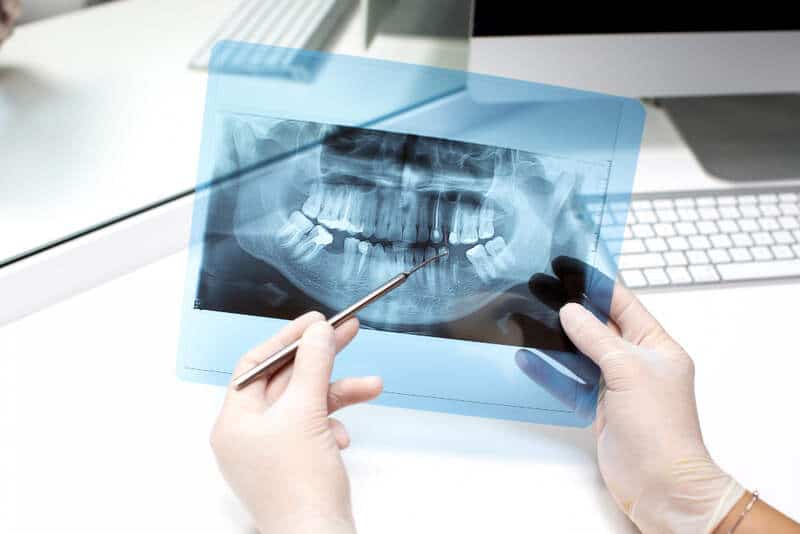Dental X-rays diagnose oral health issues that might go undetected during an in-office patient examination. These may include infections in teeth or tooth roots, cavities between or underneath fillings or bone loss due to severe gum disease.
In some cases, dental treatment requires the use of X-rays. When making this recommendation, dentists consider several factors, such as an individual’s current oral health status, age, and the risk of tooth decay or gum disease. New patients benefit greatly from baseline X-rays as they allow dentists to quickly evaluate oral health status and serve as a reference for future comparisons.
Leslie Family Dental is offering dental X-rays in Newmarket. Dr. Weizblit and his team are committed to providing the finest dental care in a safe and comfortable environment. We genuinely care for our patients. Currently, we are accepting new patients.
Dental X-rays: How Do They Work?
Dental X-rays use electromagnetic radiation to penetrate through soft tissues. to produce images of your mouth and teeth.
Conventional dental X-rays utilize film; digital versions rely on sensors and computer technology and offer up to 80% less radiation exposure than their film predecessors.
What Are the Different Types of Dental X-rays?
- Bitewing X-rays show the upper and lower back teeth in a single view. They detect decay between teeth and show how well the upper and lower teeth line up. They can also indicate bone loss due to gum disease.
- Periapical X-rays provide a view of the entire tooth, from the crown to the bone, that helps to support the tooth. They detect dental problems below the gum line or in the jaw, such as impacted teeth, abscesses, cysts, tumours, and bone changes linked to some diseases.
- Panoramic X-rays give a broad view of the jaws, teeth, sinuses, nasal area, and jaw joints. They reveal problems such as impacted teeth, bone abnormalities, cysts, tumours, infections, and fractures. They are often used to assess the position of wisdom teeth and in planning for orthodontic treatment.
- Occlusal X-rays are larger and show full tooth development and placement in children. They can detect the presence of extra teeth, teeth that have not yet broken through the gums, jaw fractures, a cleft in the palate, cysts, abscesses or growths.
- Orthodontic (Cephalometric) X-rays show an entire side of the head. They help to examine the teeth in relation to the jaw and the person’s profile. Orthodontists use them to plan treatments.
- Cone Beam Computed Tomography (CBCT) creates 3-D images of dental structures, soft tissues, nerves, and bone. It is used to plan dental implant placement, evaluate the jaws and face, view abnormal teeth, diagnose cracks in teeth and assess the viability of performing a root canal therapy on teeth which may have questionable prognosis due to various issues.
- Digital X-rays are a modern method for connecting X-ray sensors to a computer. The image is captured digitally and can be viewed instantly. They are used for a variety of diagnostic purposes and involve less radiation exposure than comparable film X-rays.
Each type of dental X-ray provides different information and is chosen based on the specific needs and symptoms of the patient. They play a role in preventive health care and are vital to a comprehensive dental examination.
How Often Are Dental X-rays Needed?
It is very common for dental X-rays (in particular, Bitewings X-rays) to be taken annually. However, Dr. Weizblit may advise taking them more or less frequently depending on the patient’s predisposition to cavities or if there exists some dental issue that requires special monitoring. The frequency varies based on age, oral health history, signs of oral disease, and history of teeth or gum issues. For example, patients who are diabetic with poor blood sugar level control may need more frequent X-ray monitoring. Similarly, patients with unique dental features such as deeply grooved teeth or patients who repeatedly present with new cavities due to poor oral hygiene or increased genetic predisposition to cavities have a higher risk of developing cavities and would necessitate more frequent X-ray imaging for proper monitoring.
The Canadian Dental Association (CDA) recommends considering the following when discussing your dental X-ray frequency with your dentist:
- Do you brush your teeth twice a day using fluoride toothpaste, following proper brushing techniques as advised by your dentist?
- Do you floss daily?
- Do you maintain a balanced diet, encompassing all food groups while minimizing sugary and sticky foods?
- Have you had cavities or gum disease in the past?
- Do you smoke?
- How would you rate your overall health?
Dental X-Ray Schedule for Children, Adolescents, and Adults
The following is a general recommendation for dental X-ray frequency from the American Dental Association.


Source: www.FDA.gov
How Many X-rays Are Safe in a Year?
Concerns about the safety of dental X-rays often arise due to radiation exposure. However, dental X-rays are generally considered safe. Safety measures such as lead aprons with built-inthyroid collars help limit radiation exposure and pregnant women can undergo dental X-rays safely with protective measures. Delaying dental treatment could lead to more severe problems.
The number of dental X-rays deemed safe in a year varies. A general guideline is one set of bitewing X-rays annually for routine checkups. However, dentists may recommend more frequent X-rays if there’s a specific oral health concern. Discuss the necessity of X-rays with Dr. Weizblit to ensure appropriate and safe imaging.
Can I Refuse an X-ray?
Patients can decide whether to proceed with the recommended treatment. This includes the option to decline diagnostic tests, dental therapy, or X-rays. However, dentists and dental hygienists can only provide the best care with a comprehensive diagnosis. Without X-ray images, the dentist may miss something if it is not visible with a clinical exam alone.
Leslie Family Dental is dedicated to providing excellent dental services and ensuring exceptional and genuine patient care. Have questions? Give us a call.
We strongly recommend that you have your X-rays taken before symptoms appear. Visit us at our State-Of-The-Art dental facility in Newmarket, Ontario. We provide comprehensive dentistry emphasizing patient care, education, and comfort. We strive to make the experience as comfortable and convenient as possible. Call for an appointment: Leslie Family Dental (289) 453-0606

